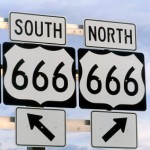 One of the fundamental principles of Biblical interpretation, is to let the Bible interpret the Bible, as opposed to attempting to interpret the Bible, whether it be Revelation or Matthew 24, with the New York Times or Fox News.
One of the fundamental principles of Biblical interpretation, is to let the Bible interpret the Bible, as opposed to attempting to interpret the Bible, whether it be Revelation or Matthew 24, with the New York Times or Fox News.
In other words, you don’t look at current events and then try to find them in the symbolism in Revelation. It’s specious and chronologically arrogant, assuming as it must, that we are, as one pulp fiction writer called it, “the terminal generation.”
The symbols and figures of speech used in Revelation, and other parts of the New Testament, were known to the Jews and had often been used in the Old Testament. This is true of the image of God “coming with the clouds.” Continue reading “Coming With The Clouds”


